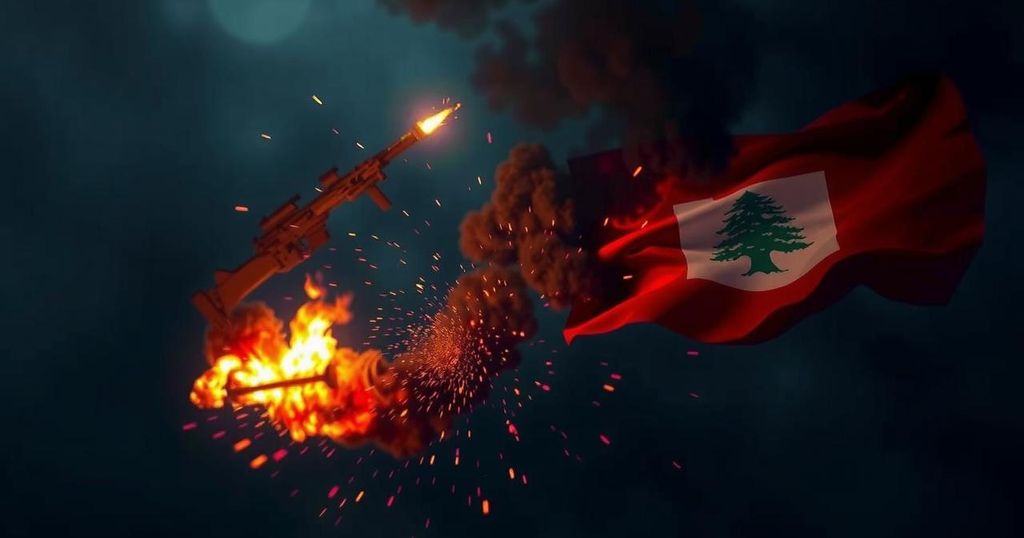Escalating Violence in Gaza and Lebanon’s Response to Israeli Attacks
The situation in Gaza has escalated drastically with the Israeli military’s recent attacks resulting in numerous civilian casualties. The Palestinian presidency has condemned the violence, linking it to U.S. support for Israel, and has called for international intervention. In Lebanon, tensions are rising as Hezbollah increases its operations against Israel while waiting for a response to a U.S. settlement proposal. Prime Minister Mikati emphasizes the need for national unity and adherence to UN resolution 1701.
The Ministry of Health in Gaza reported that the Israeli military has perpetrated three assaults against civilians within a single day, resulting in 35 fatalities and 111 injuries. The cumulative toll of the Israeli offensives since October 7, 2023, now stands at 43,799 deceased and 103,601 injured. The Palestinian presidency asserted that the ongoing violence, particularly by Israeli settlers in the West Bank and the relentless aggression in Gaza, correlates with the unwavering support Israel receives from the United States. Urgent international intervention is deemed necessary to halt the escalation of violence. Nabil Abu Rudeineh, spokesperson for the Palestinian presidency, emphasized the need for a decisive global response, arguing that mere expressions of condemnation are insufficient to curb the escalating destruction resulting from Israeli actions. He noted, “the Israeli persistence in crime and terrorism… is due to the continued American support with money, weapons, and political cover.” Meanwhile, Israel is awaiting Lebanon’s reaction to a proposed settlement plan from the United States, amidst significant operational escalations. The Israeli military has intensified its assaults across various regions in Lebanon, following an announcement of a second ground invasion into southern areas. Concurrently, Hezbollah has increased its operations against Israeli military installations, with recent reports indicating an escalation to thirty-one targeted sites. During a meeting with Ali Larijani, a senior advisor to the Iranian leadership, Lebanese caretaker Prime Minister Najib Mikati asserted the necessity of supporting Lebanon’s position on the enforcement of UN resolution 1701. He called for national unity and actions that do not exacerbate sensitivities among different Lebanese factions. He reiterated that the Lebanese government’s priorities remain focused on ending Israeli hostilities against Lebanon, attaining a ceasefire, and implementing resolution 1701 in its entirety without modifications.
The current conflict in Gaza and its implications extend beyond the immediate violence, involving international relations and political dynamics in the region. The ongoing hostilities have led to staggering casualties and humanitarian crises, drawing significant attention from global leaders and organizations. The Palestinian leadership has been vocal about the role of U.S. support for Israel, linking it to the escalation of violence. Meanwhile, the situation in Lebanon is complicated by Hezbollah’s military activities against Israel and the Lebanese government’s attempts to navigate these tensions while adhering to international resolutions.
The recent intensification of Israeli military actions in Gaza and the West Bank underscores a dire humanitarian situation, with thousands of casualties reported. The Palestinian leadership’s call for international intervention highlights the urgent need for global engagement in conflict resolution. Concurrently, the developments in Lebanon and the role of Hezbollah in the conflict complicate regional dynamics. The Lebanese government’s commitment to upholding UN resolution 1701 reflects a desire for stability amidst escalating tensions. The implications of such actions necessitate careful observation and prompt diplomatic efforts to alleviate the ongoing crises in both regions.
Original Source: www.dailynewsegypt.com




Post Comment